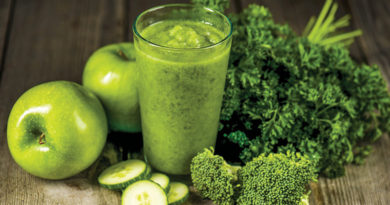Secrets To Effortless Menopause
By Christal Blanchard, ND
Hot flashes, night sweats, insomnia, mood swings, tired, worn-down, brain-fog?
Does that sound like you? Fortunately you don’t have to suffer during menopause. Menopause is a different experience for every woman and for some, a beautiful transition into a different stage in life where priorities have shifted and life is viewed with a new wisdom.
First off, menopause, simply defined, is when a woman stops menstruating for one year or more. At this point, estrogen levels drop, which is thought to be the primary cause of menopausal symptoms. Prior to reaching menopause, there is a period of time that can range from two to eight years that we call perimenopause.
You may start to experience symptoms like spotting, irregular periods, heavy/light bleeding, acne, fatigue, weight gain, etc. The symptoms vary from person to person and can shift from hormone dominance to hormone deficiency. In any case, it is considered to be a hormonal imbalance, which is very common during perimenopause and easily managed with the right tools.
Menopause and hormone balancing is not a new topic You have probably encountered a new herb or supplement that promised a healthier menopause. Yes, there are many formulations and some really good ones, however a supplement can only do so much.
The first and most obvious thing to consider is that every person/situation is different from the level of exposure to exogenous hormones (from your lifestyle and environment), to the production of endogenous hormones (what is made inside the body naturally) and to how effective the organ systems are at detoxing excess hormones.
A proper evaluation by your healthcare practitioner is required to determine which category you fall in before attempting any formulation.
As you may have already discovered, your body (for both men and women) depends a great deal on your hormones – from the strength of your skin and bones, your fertility, your mood and even for optimal heart health. Hormones bind to these tissues and organs like a lock and key and each have a specific role.
Sometimes there is direct competition at these receptor sites with other “hormone-mimickers,” which look like hormones, but don’t really act like our natural hormones. Therefore, according to your blood test, it may look like you have adequate hormone levels, but in fact, they are not being used effectively.
Some of these hormone mimickers include the chemicals found in your cosmetics and house cleaning supplies, medications (like the birth control pill), pesticides, plastics (worse when heated) and worst of all, according to Toronto-based Environmental Defence, in our foods like meats, dairy products, fish and pesticide-laden fruits and vegetables.
With all this extra exposure to “hormones,” it’s difficult for the body to keep them in perfect balance, which is necessary at all times to prevent what we call hormone havoc. It’s even more challenging during menopause due to the fact that the ovaries are decreasing their production of hormones (particularly estrogen) and the adrenal glands take on some of the responsibility.
The adrenals are two small organs that sit on top of the kidneys and regulate our response to stress by stimulating the production of cortisol. Too much cortisol is not good, however, too little can be problematic as well. Therefore if you haven’t been particularly kind to your adrenals and have overworked them (through mental, emotional and physical stress), they will not be so kind to you in terms of hormone balancing, hence explaining why one might experience symptoms of menopause.
The first step is to treat your adrenals. Your naturopathic doctor can help you determine if this is one of the causes of your hormonal imbalance and can tailor a protocol individualized to your needs. In the meantime, there are many things you can do, starting with the basics – your diet.
The first thing to understand is the relationship between hormones and insulin. Foods which have a higher glycemic load (i.e packed with sugar or convert to sugar once in the body like in pasta) stimulate higher amounts of insulin to keep up with removing sugar out of the blood to drive it into the cells.
After years of overconsumption of these foods, not only does your body start to become insensitive to the actions of insulin, but it also stimulates cortisol production. The combination of these two hormones leads to increased fat accumulation around the belly and a slower metabolism.
Cut down on foods that are higher in glycemic load and that affect your hormones like refined sugar and carbohydrates. Some sugars (i.e. table sugar) are worse than others (i.e. local honey). Keep in mind that sugar is still sugar and for the sake of our hormones, we are trying to keep our insulin levels low.
The easiest way to think about this is that white foods are most likely highly processed (i.e. white rice, white pasta, white flower in muffins, breads, etc..) and worse for your blood sugar than foods that are high in protein and healthy fats. Pop and alcohol are basically liquid sugar and, once eliminated, your metabolism gets kicked up a notch. Even though whole grains are a healthier choice (i.e. brown rice, whole oat, whole wheat), it can be just as problematic if eaten in higher quantities.
I agree everything in moderation is key, but in the beginning it is best to try to eliminate as much of these foods for a short period so that you can in a sense “reset” your hormonal equilibrium.
So what should we be eating? During menopause there is a tendency towards a deficiency in hormones. therefore we want to consume healthier fats and protein, the building blocks of hormones. Essential fatty acids are found in fish, eggs, soy, flax seed oil, hemp hearts, nuts and seeds like pumpkin seeds, sunflower seeds, walnuts, etc.
Protein can be found in meats, eggs, fish, nuts and seeds, legumes (think hummus), quinoa, some vegetables (like broccoli and Brussels sprouts), etc. An easy way to think about how much protein you require would be to eat your weight in kilograms of protein. Therefore a 70kg woman would eat approximately a minimum of 70 grams of protein per day, at rest. If she is working, exercising or in menopause, she may require more; double in some cases.
I have seen many women increase their protein intake and this alone tremendously helped with their hot flashes. Of course, green leafy vegetables are of the utmost importance here since they contain many vitamins and minerals which help to make hormones, as well as eliminate excess hormone metabolites.
There are two super foods that I would like to single out for their phytoestrogenic abilities (i.e. balancing of estrogen):
1) Soy: The soy isoflavones help to bring estrogen back to equilibrium. There has been some controversial research in regards to soy and because of this, my only hesitation is within the community of women already diagnosed with an estrogen-dominant cancer. Otherwise, women who consume approximately 140 mg of organic soy isoflavones have shown significant decreases in hot flashes, night sweats and other menopausal symptoms.
Foods in which you can find soy isoflavones include soy milk, tofu, tempeh, green soybeans, soy nuts, etc. These contain approximately 35-50 mg of isoflavones. It is very important to consume these only if they are derived from organic, non-GMO sources. It is well known that women of Japanese and Chinese descent consume larger quantities of soy isoflavones and they suffer the least from menopausal symptoms.
2) Flax: High in magnesium and has anti-cancer benefits, it is composed of omega 3, lignans (antioxidants) and both soluble and insoluble fibre. It forms a mucilage in the intestines as it absorbs water and feeds our gut flora, which assists in the removal of toxic metabolites from the body.
Not only is it extremely effective at balancing our hormones, but it also has benefits for our skin, hair, nails, weight and can lower cholesterol. Ground flaxseeds are best (and should be kept in the fridge or freezer) and two tablespoons of flax amounts to approximately five grams of fibre. It’s best to spread out your consumption of fibre throughout the day and drink plenty of water or else fibre can tend to constipate you.
Remember that perimenopause and menopause will not last forever and varies from woman to woman. You can minimize the intensity of your symptoms by exploring all of your options and choosing one that fits best for you.
Christal Blanchard is a Naturopathic Doctor in Sudbury and Toronto. She has a special focus in women’s health, digestive disorders and pain management.




